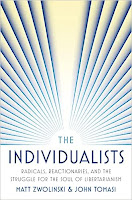This question is posed in the title of Chapter 10 of
Steven Pinker’s book,
Rationality: What it is, Why it Seems Scarce, Why it Matters.
I enjoyed reading the previous 9 chapters but didn’t learn much from them. Those chapters were a painless way to refresh my memory about definitions of rationality, rules of logic, probability, Bayesian reasoning, rational choice, statistical decision theory, game theory, correlation, and regression analysis.
I particularly liked the approach Pinker took in discussing the research of Daniel Kahneman and Amos Tversky which documents many ways in which people are prone to fall short of normative benchmarks of rationality. Pinker makes the point:
“When people’s judgments deviate from a normative model, as they so often
do, we have a puzzle to solve. Sometimes the disparity reveals a genuine
irrationality: the human brain cannot cope with the complexity of a problem, or
it is saddled with a bug that cussedly drives it to the wrong answer time and
again.
But in many
cases there is a method to people’s madness.”
A prime
example is loss aversion: “Our existence depends on a precarious bubble of
improbabilities with pain and death just a misstep away”. In Freedom
Progress and Human Flourishing, I argued similarly that loss aversion
helped our ancestors to survive.
Pinker
doesn’t seek to blame the propensity of humans to make logical and statistical
fallacies for the prevalence of irrationality in the public sphere. He is not
inclined to blame social media either, although he recognises its potential to
accelerate the spread of florid fantasies.
The mythology mindset
Pinker argues that reasoning is largely tailored to winning arguments. People
don’t like getting on to a train of reasoning if they don’t like where it takes
them. That is less of a problem for small groups of people (families, research
teams, businesses) who have a common interest in finding the truth than it is
in the public sphere.
People tend to have a reality mindset when they are
dealing with issues that affect their well-being directly – the world of their
immediate experience – but are more inclined to adopt a mythology mindset when
they are dealing with issues in the public sphere.
When economists discuss such matters, they may refer
to the observation of Joseph Schumpeter that the typical citizen drops to a
lower level of mental performance when discussion turns to politics. They
reference the concept of rational ignorance attributed to Anthony Downs and
Gordon Tulloch. They may also refer to Brian Caplan’s concept of rational
irrationality. (For example, see Freedom,
Progress, and Human Flourishing, pp 114-115).
Pinker doesn’t refer to those economists’ perspectives
but offers interesting insights about factors that might lead people to adopt mythology
mindsets. In summary, as a consequence of myside bias, attitudes to the
findings of scientific studies often have less to do with scientific literacy
than with political affiliation. The opposing “sides” are sometimes akin to “religious
sects, which are held together by faith in their moral superiority and contempt
for opposing sects”. Within those sects the function of beliefs is to bind the
group together and give it moral purpose.
What can we do?
Pinker’s suggestions for combatting irrationality in
the public sphere are summed up by his subheading “Re-affirming Rationality”.
He advocates openness to evidence, noting the findings of a survey suggesting
that most internet users claim to be open to evidence. He suggests that we
valorize the norm of rationality by “smiling or frowning on rational and
irrational habits”.
Pinker identifies institutions that specialize in
creating and sharing knowledge as playing a major role in influencing the
beliefs that people hold. Since “no-one can know everything”, we all rely on
academia, public and private research units, and the news media for a great deal
of the knowledge which forms the basis of our beliefs. Unfortunately, these institutions
are often not trustworthy.
In the case of the universities, Pinker suggests that the
problem stems from “a suffocating left-wing monoculture, with its punishment of
students and professors who question dogmas on gender, race, culture, genetics,
colonialism, and sexual identity and orientation”. News and opinion sites have
been “played by disingenuous politicians and contribute to post-truth miasmas”.
It is easy to agree with Pinker that it would be wonderful
if universities and the news media could become paragons of viewpoint diversity
and critical thinking. However, movement toward that goal will require large
numbers of individuals to enlist for a ‘long march’ to re-establish norms of
rationality in institutions that specialize in creating and sharing knowledge.








